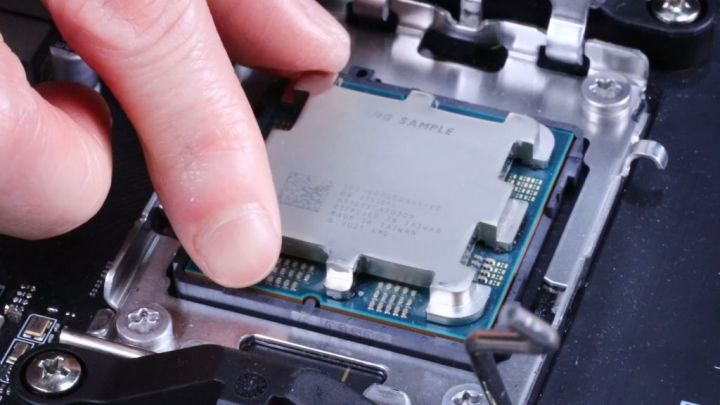AMD has clarified specification details about its new Ryzen 7000 desktop CPUs and AM5 socket, following an announcement of the range at Computex 2022. The upcoming processors will have a thermal power design (TDP) of up to 170W, which is significantly above the 125W TDP the company implied the range would top out at.
A lot of the confusion comes from the new AM5 socket and X670 chipset. During the announcement, AMD revealed that these motherboards would support up to 170W of power, which leaves plenty of wiggle room for the 125W TDP limit. AMD now says that the announcement was made in error, and that processors will go up to a 170W TDP with a total board power of 230W.

The news comes from Tom’s Hardware, which received a correction from AMD after multiple outlets published stories surrounding the power limit. You can find the full quote from an AMD representative below, but it’s pretty dense with technobabble:
“TDP*1.35 is the standard calculation for TDP v. PPT for AMD sockets in the “Zen” era, and the new 170W TDP group is no exception (170*1.35=229.5). This new TDP group will enable considerably more compute performance for high core count CPUs in heavy compute workloads, which will sit alongside the 65W and 105W TDP groups that Ryzen is known for today.”
All of that technical vomit translates like this: TDP is the power the processor should run at most of the time, while PPT is the maximum power the processor can boost to. For instance, last-gen’s Ryzen 9 5950X has a TDP of 105W, but it has a PPT of 142W. The top Ryzen 7000 chip will have a TDP of 170W and a PPT of up to 230W.
It’s a massive jump in power compared to the previous generation. Previous Ryzen CPUs, which are among the best processors you can buy, have been lower-power alternatives to Intel’s processors for years. Ryzen 7000 is very close to Intel’s Alder Lake processors for power (though still far below the Core i9-12900KS).
AMD concludes its statement by apologizing for the error and emphasizing how important transparency can be in the enthusiast community.
The Ryzen 7000 chip will also be available in different configurations when it launches in September. TDP options are set to include 65 watts, 105 watts, 125 watts, and 170 watts.
Editors' Recommendations
- I’ve used Intel CPUs for years. Here’s why I’m finally switching to AMD
- AMD Zen 5: Everything we know about AMD’s next-gen CPUs
- AMD vs. Intel: the rivalry has never been more fierce
- AMD’s new Ryzen 8040 CPUs aren’t all that new
- Intel said AMD’s Ryzen 7000 is snake oil






